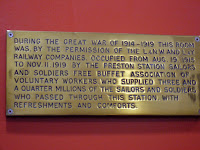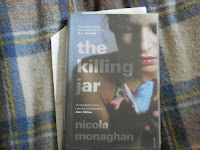
On numerous occasions, the author returns home to Zimbabwe over the course of an eight year period between 1996 and 2004. During this time he sees the ever declining conditions of his homelands economy and civil society. At the beginning of Godwin’s story, Zimbabwe is akin to Switzerland (p32-3). On subsequent visits he tracks the ever perpetuating decline into near anarchy. And during his moving story, Godwin discovers that his familial roots are not as ‘English’ as he was led to believe. In fact, his father leaves Poland and mainland Europe just in time to narrowly avoid being caught up with other Jews in the holocaust.
The modern day villain of the piece is clearly Mugabe. White farmers are evicted from their lands. Both Black and White people are physically threatened and actually assaulted. Living standards for all decline rapidly. Godwin’s story brings to us the effects of Mugabe’s actions, but very little analysis of its causes. The exception being during pages 153 to 158, where he discusses African problems in general rather than Zimbabwe specifically; Africa, large as it has lower population density compared to other continents, hence few large cities; which means African agriculture is subsistence farming for millennia; European imposed borders cut across cultural and linguistic lines dividing natural constituencies and storing up potential conflict for later; and of course, corrupt elites.
This brings us neatly to Mugabe. Godwin is very good at describing the human cost of Mugabe’s regime. The land seizures by the ‘war-vets’ (ostensibly veterans from the 1970s civil war), are more akin to Mugabe’s rent-a-mob of hired thugs than the genuine veterans they claim to be. By replacing efficient and experienced, but white, farmers, with ill-experienced black ‘war-vets’ is a reversal of the industrialised agricultural revolution. Put simply, big farms are more efficient and better at producing food. Subdividing the land is not. Zimbabwe’s food crisis over the last decade was entirely avoidable and politically created.
But what Godwin fails to do is ask why Mugabe would do this? LBR does not have an answer but hypothesises that the ‘war-vets’, foot soldiers of the Zanu-PF party, grew tired and restless and began to demand a reward for their loyalty. Mugabe, in a move that only Stalin could approve of, having nothing else to offer them, willingly turns a blind eye to the abuse meted out to white farmers. Thus he then prepares to profit from the turmoil that engulfs his country by clamping down on the opposition and tightening his grip on political power, scape-goating white farmers and Imperial perfidious Albion to boot. Sneaky eh?
Interesting for students of IR to ask is the role of South Africa. What on earth were the land of Mandela and the rainbow nation doing whilst all this was happening on their doorstep? Thabo Mbeki, South African President at the height of the Zimbabwe crisis, called for diplomacy, which was ineffectual. Of course, SA leaders may feel unable to act. LBR suspects there are plenty of African leaders that never tire of reminding South Africa, regional superpower they maybe, but they were the last African country to rid themselves of imperialism; so what business do they have to teach other Africans on how to organise their internal affairs?
Through all of this Godwin’s account is a reminder that real people are suffering and are oppressed if they even express their frustrations. Black and White have suffered under Mugabe. A real shame as Zimbabwe was an African success story. Despite the opposition leader Tsvangirai now being Prime Minister, will Zimbabwe ever be a democracy with Mugabe still as its president?


































